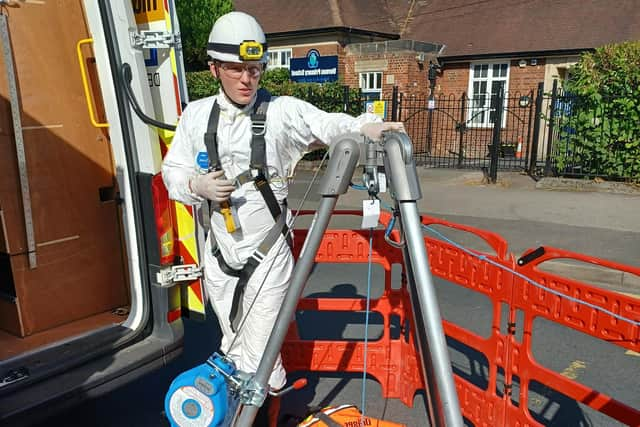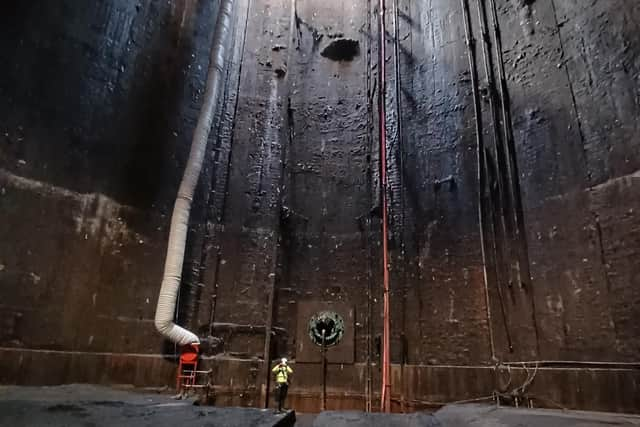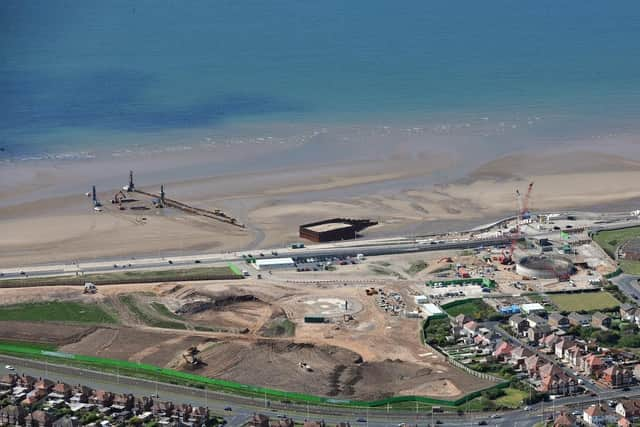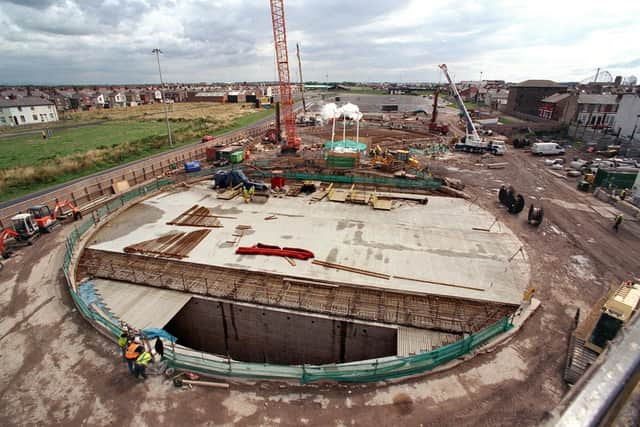How artificial intelligence is getting to grips with Blackpool’s sewage to keep beaches clean
and live on Freeview channel 276
As Blackpool undergoes huge regeneration, the hidden world of sewers beneath the streets has also been getting an overhaul - and now it’s joining the digital world of AI – with an intelligent sewer system that issues alerts to reduce flooding and overflows is in the pipeline for Blackpool.
Dynamic Network Management is the latest investment from United Utilities to upgrade our drainage system that was inherited from the Victorians and will see more than 350 data-gathering sensors installed at flood risk areas across the town this year.
Advertisement
Hide AdAdvertisement
Hide AdThe sensor matrix provides information on how the network is performing and identify issues such as blockages and sudden rises in water before serious problems arise.


The data captured is sent back to a digital platform that has been designed specifically for United Utilities, which uses artificial intelligence and machine learning to learn what is normal in a particular location and detect changes enabling teams to respond.
Paul Forshaw, Network Business Manager at United Utilities said: “The sensors act like eyes and ears for us in the drainage water network and alert us to changes, whether that is a blockage caused by an obstruction that has built up, or rapidly rising water levels.
“As the majority of the sewer network is buried underground it is impossible to know what is happening in there. Traditionally we’ve only been able to respond to problems when they happen, Dynamic Network Management changes that as alerts are issued when water levels rise, or flow rates slow down – both of which can indicate problems. In a nutshell it means we can manage the network, rather than the other way round.”


Across the region United Utilities is halfway through a programme to install over 19,000 sensors.
Paul added: “This investment is giving us visibility as to what is happening on our wastewater network and when, so we can detect and prevent any unnecessary issues before they become a problem for customers or the environment.”
Advertisement
Hide AdAdvertisement
Hide AdBlackpool’s first ever sewage treatment system became operational in 1996 – since then, with substantial investment, the Fylde coast’s network has been modernised and expanded to cope with the demands of a growing population and the pressures created by a changing climate and increased rainfall.
The highly urban nature of Blackpool means rainfall is often unable to soak away naturally and much of it flows straight into the sewer network. This can create problems in times of heavy rainfall when the system can become overloaded quickly and dirty water carried into the sea.


To reduce this risk, the system in Blackpool has been expanded with the introduction of a vast underground network which includes the Fylde Coast Interceptor tunnel – a 3m wide, 14km long tunnel under the promenade from Manchester Square to the waste water treatment facility at Fleetwood.
This is supported with a series of underground tanks which are used to hold excess storm water in periods of heavy rain; once the rain subsides, the water is released back into the sewer system as normal to be cleaned. Together these have a capacity of 138,000m3 – the equivalent of more than 55 Olympic sized swimming pools.
Advertisement
Hide AdAdvertisement
Hide AdThe biggest tanks in Blackpool are under the car park at Bloomfield Road, together the two tanks have a capacity of 64,000m3 - that’s almost 26 Olympic sized pools - and were installed in 1999.
Every year ahead of the summer bathing season, they are given a spring clean.


Project Manager Greg Fairbrother explained why this annual clean-up is needed.
He said: “The tanks are under the car park and most people don’t know they are there. There are two tanks, each with a capacity of 32,000m3 making them our biggest in Blackpool.
Advertisement
Hide AdAdvertisement
Hide Ad"Their location means that they do get silted up with debris and sludge, so once a year we open them up and give them a good clean out. It is vital that we do this so that we can keep the maximum capacity available if we need them.”
During the cleaning 550 tonnes of material was removed.
Greg explained: “Because the tank is 30m deep, we use a crane to lower all the equipment and people in and out. We use mini diggers to scoop the sandy material into skips and these are lifted out when they’re full.”
Further north in town, a new 12,400 m3 storage tank – the equivalent of 12 million sandcastle buckets and pumping station have recently been installed at Anchorsholme Park.
The £80m project began with the installation of the new storm water tank which now sits underneath a paved ‘amphitheatre’ area in the park. This was followed by the replacement of the outfall pipe with a new much longer pipe - at 2.8km it is the equivalent of 25 Blackpool Towers.
Advertisement
Hide AdAdvertisement
Hide AdFinally a new underground pumping station was constructed. The park itself was also revamped with the introduction of a new café, outdoor seating areas, children’s playground and sports area.
Heavy deluges are not always to blame when water doesn’t drain properly.
Across the UK, millions of pounds are spent on cleaning drains and sewers of blockages caused by products that shouldn’t be in them. Wet wipes, cotton wool, nappies, cotton buds and dental floss are just some of the culprits that often get flushed down the loo, along with fats, oils and grease which are poured down the drain.
And in the Blackpool area United Utilities teams have dealt with more than 680 blockages during the last 12 months alone.
Advertisement
Hide AdAdvertisement
Hide AdSome of the more unusual items found in Blackpool’s drain include cutlery, children’s toys, blocks of wood and even tools to unblock pipes!
As well as potentially forcing waste back into homes and gardens, blockages also mean waste from sewers can end up in rivers and on beaches.
United Utilities’ Andrew Peet, said: “The main culprits behind blockages are things like wet wipes and nappies, they don’t just disappear down the u-bend and dissolve - they clump together and cause havoc in the sewers because eventually nothing will be able to pass.
“We urge people to think before they flush and remember that only the three Ps – pee, poo and paper should go down the loo.”
